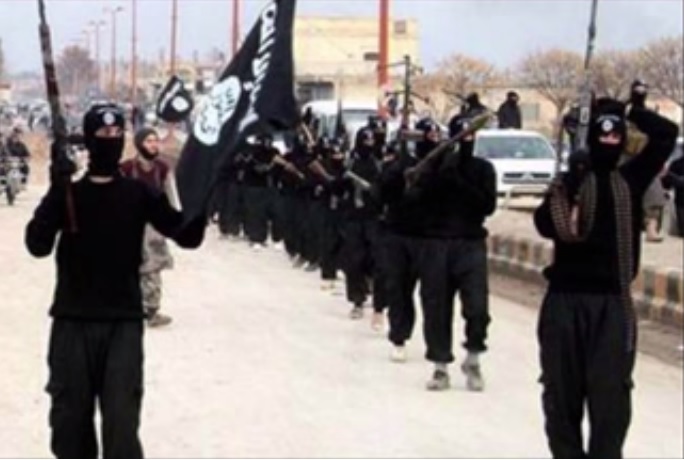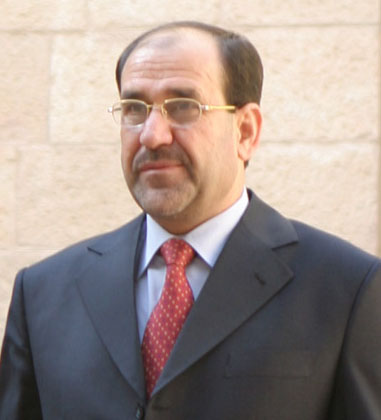ISIS or ISIL has been in all the headlines recently – but who are they and what do they want? A closer look at a rising star.
There's a new terrorist organization in town, and it's got all the pundits yapping • Islamic State of Iraq and the Levant (ISIL) is on its way to become an Islamic superstate, leaving a trail of dead bodies and mutilated limbs in its wake • The terrorist attack in Belgium and the cross border activity led to growing fear of terrorist activity in other Middle Eastern States Even Iran is sending fighters to see them off • Can the most brutal terrorist regime yet seen in the region be defeated? Or are we truly facing a new caliphate?

When ISIL conquers territory, you can expect the worst. Testimonies of massacres and ethnic cleansing have become routine; reports are coming in from all over of public beheadings, floggings and executions, irrespective of gender or age. In one of many such shocking cases, ISIL activists shot a fourteen year old kid for taking Mouhammad's name in vain – in front of his parents.
ISIL activists are also behind the crucifixion of "heretics" and Christians, as well as cutting off limbs for theft and the murder of civilians and prisoners of war. Even Pope Francis stepped in himself to condemn such acts. Another example of such brutality came just this month, when according to Amnesty International, ISIL conquered a Kurdish town in northern Syria. As the residents were suspected of supporting Kurdish separatists, ISIL murdered many men, women and children and expelled others.
Events in Iraq are directly connected to the Syrian Civil War, which provides ISIL with thousands of foreign fighters. One of these is Mahdi Namosh, the terrorist who attacked the Jewish Museum in Brussels. Namosh is one of thousands who arrive in Syria to receive combat training and extreme ideological indoctrination. Said indoctrination gives full license for indiscriminate slaughter of the "heretic", who ostensibly threatens the Islamic Ummah and aims to humiliate it, conquer its territory and exploit its resources. Thus, any act against such people is positive religious commandment and an obligation on any ISIL member or sympathizer.
Recently, ISIL completed its takeover of the city of Mosul in northern Iraq, one of the country's important oil nodes. In addition, they succeeded in conquering the Iraq-Syria border regions and consolidating their hold there, alongside previous successes in the Anbar, Nineveh and Saladin provinces. The next objective is Baghdad, and as the terrorists themselves admit – they're not about to take prisoners.
Darkness Rising

What is ISIL's end goal? Most think ISIL aims to establish an Islamic state or Caliphate, which will serve as a launchpad for global Jihad. If recent events are any indication, the path to a Caliphate runs through rivers of blood. Syria, Iraq and Belgium are just the beginning – we will no doubt see this conflict reverberate in other areas of Europe, the Middle East and even in Israel.
Reports from various sources are already speaking of a Christian exodus. One Iranian media outlet quoted Muqtada al-Sadr, one of the senior Shia leaders in Iraq, who called on Christians to join the Shiites in their common struggle to fight ISIS and protect their holy places. Al-Sadr published a missive stating that he was willing to "establish Peace units to protect the holy places" and to cooperate with the Iraqi government headed by Maliki. It's important to stress that this isn't some local Iraqi affair. The recent chain of events is unsettling the entire balance of power in the region and possible beyond. Everyone from the Gulf States to Israel, Jordan and Syria to Iran and Europe and the US are affected by them.
Ostensibly, none of the above want the ISIL to succeed. There are even troubling reports that ISIL is bringing the US and Iran closer together, ostensibly to fight the common Jihadi-Salafi enemy: the US, who has no desire to send ground troops in Iraq, will allow Iranian military intervention and in tandem improve bilateral relations. When it comes to Jordan, there is a danger that fighters and terrorists will try to infiltrate the kingdom, either to conduct attacks or galvanize radical elements to clash with the government.
For Iran, the situation is clear: ISIL cannot be allowed to take over strategic areas in Iraq. Hassan Rouhani said as much when he stated that his country is ready tupport the Iraqi government's efforts against ISIL and rebellious Sunni tribes. According to a report in the Guardian, the Tehran regime has sent 2,000 soldiers to help fight ISIL, a move which did not meet any American opposition.
Everything Old is New Again
ISIL's military and civilian hold on regions throughout Iraq as well as its hold on Syrian territory over the past two years, present a territory that effectively abolish the old borders handed down to the Middle East by the erstwhile colonial powers in the beginning of the twentieth century. ISIL itself published an announcement that they had abolished the infamous Sykes-Picot agreement.
In a map prepared by the Long War Journal, a project of the Foundation for Defense of Democracies, ISIL now controls some 22 cities and towns in Iraq and another seven in Syria. The report states that "The recent ISIS advances in northern and central Iraq effectively put the terror group in control of nearly a third of the country." This conquest is taking place while the American-trained and funded Iraqi army I completely falling apart. Entire Iraqi units fled before small Jihadi forces. The humiliation made Maliki, Iraqi Prime Minister, accused certain elements in the Iraqi army of "treason" and placed the responsibility for the collapse fall on Defense Ministry officials and not on him.
Researchers argue that ISIL has become a functioning, sovereign territory – much like a state – in the areas they control: "Out of the crucible of the Syrian civil war and the discontent in Iraq’s Sunni regions, something new is emerging. The Islamic State in Iraq and Syria (ISIS) is no longer a state in name only. It is a physical, if extra-legal, reality on the ground." In fact, ISIL is more reminiscent of the Afghani Taliban than al-Qaeda.

A Rising Star in the Jihadi World
Already today there are those who claim that ISIL has surpassed al-Zawahiri's al-Qaeda, becoming more important and influential for Jihadists around the world. One of the reasons for this is the organization's exceptional leader: Abu Bakr al-Baghdadi.
After America's invasion of Afghanistan in October 2001, the world Jihad movement split, with the leadership – including Bin Laden and al-Zawahiri – fleeing to the Afghanistan-Pakistan border. Others moved to Iran and from there eventually to Iraq. One of these was a Jordanian named Musab al-Zarqawi, who started operating in the country after America's invasion of Iraq in 2003, at the head of an organization called 'al-Tahwid we-Al-Jihad'. This organization is behind hundreds if not thousands of terrorist attacks against Iraq's Shiite population, Iraqi government forces and NATO and American forces. Al-Zarqawi himself is responsible for a large number of executions of hostages which have been filmed and spread throughout the net. This organization, which only numbers in the hundreds according to estimates, is still one of the most dangerous factors in Iraq.
In 2004, al-Zarqawi swore allegiance to then-leader of al-Qaeda Osama bin Laden, and adopted the name al-Qaeda in Mesopotamia. In June 2006, he was taken out by the Americans, and his organizations split in two: al-Qaeda in Iraq and Majlis Shura al-Mujeheddin. From the latter sprouted Islamic State in Iraq (ISI), which after getting involved in the Syrian Civil War renamed itself Islamic State in Iraq and the Levant (ISIL). ISIL is estimated to have some 7,000 soldiers and a large number of fans and supporters around the world.
"It's time to forget about al-Zawahiri", says Middle East Expert and Historian Prof. Jean-Pierre Filiu, "since it the head of ISIL, Abu-Bakr al-Baghdadi, who is the greatest inspiration for the world Jihad." Time magazine seems to agree, choosing al-Baghdadi as one of the hundred most influential people of 2013. The Washington Post christened the head of ISIL as "the world's most powerful Jihadi leader" and others are already calling him "the new Bin Laden", in light of his widespread popularity among Jihadists throughout the world.
So, will this new meteoric movement fizzle out as fast as it rose to prominence or are we on the way to seeing the rise of a new Caliphate? Only time will tell.
English translation by Avi Woolf.
To receive updates on new articles in English, join Mida on Facebook or Twitter or join our mailing list.





